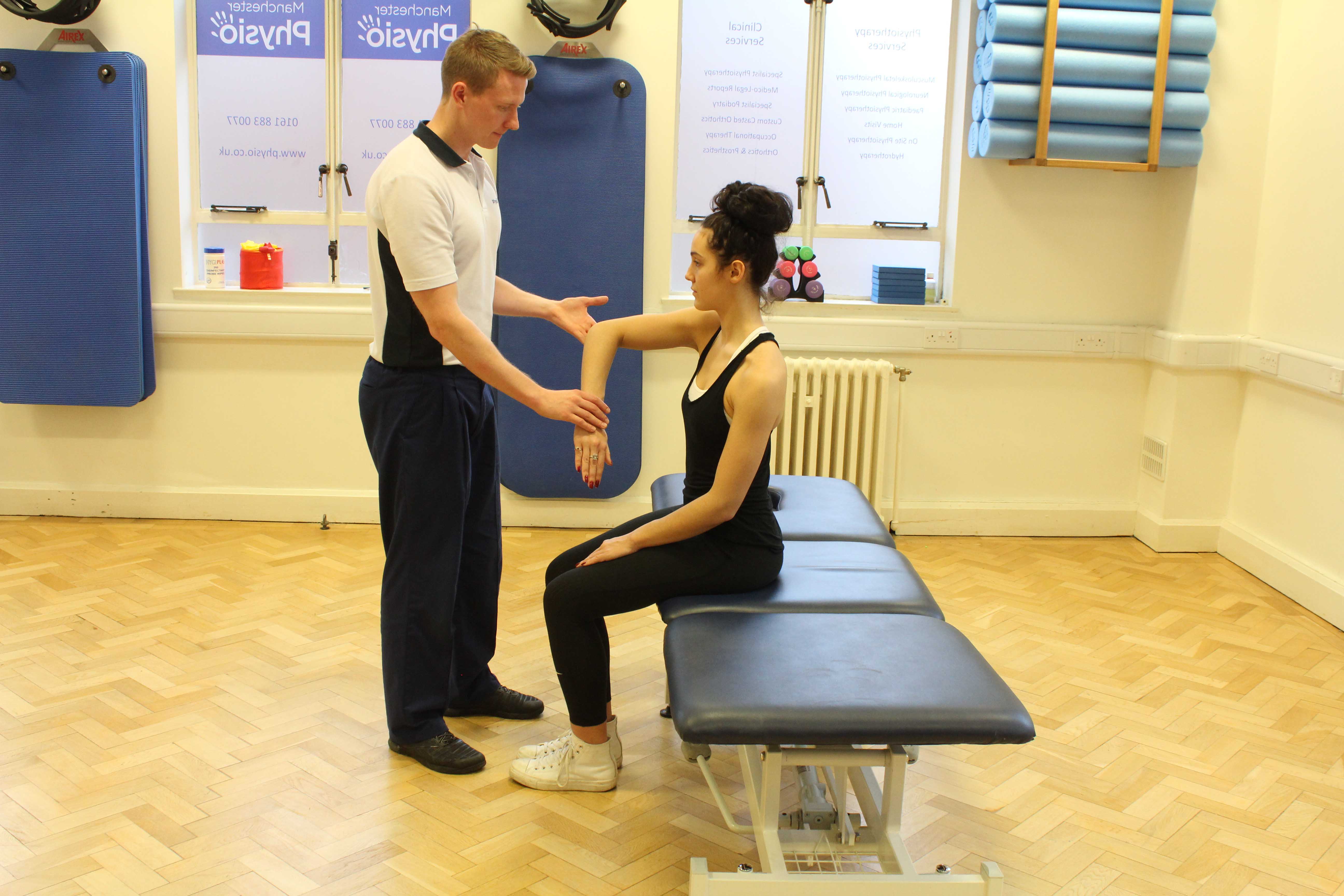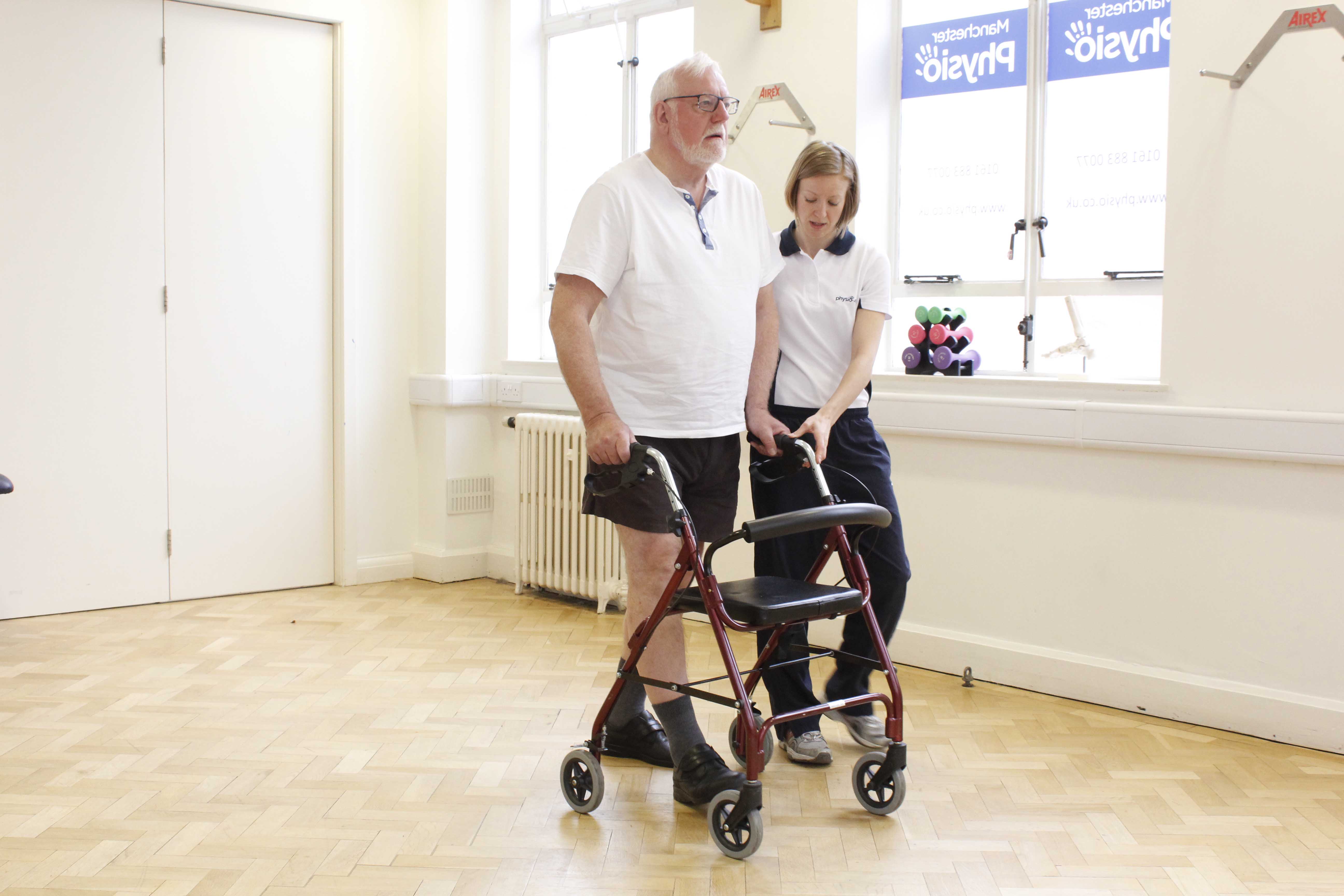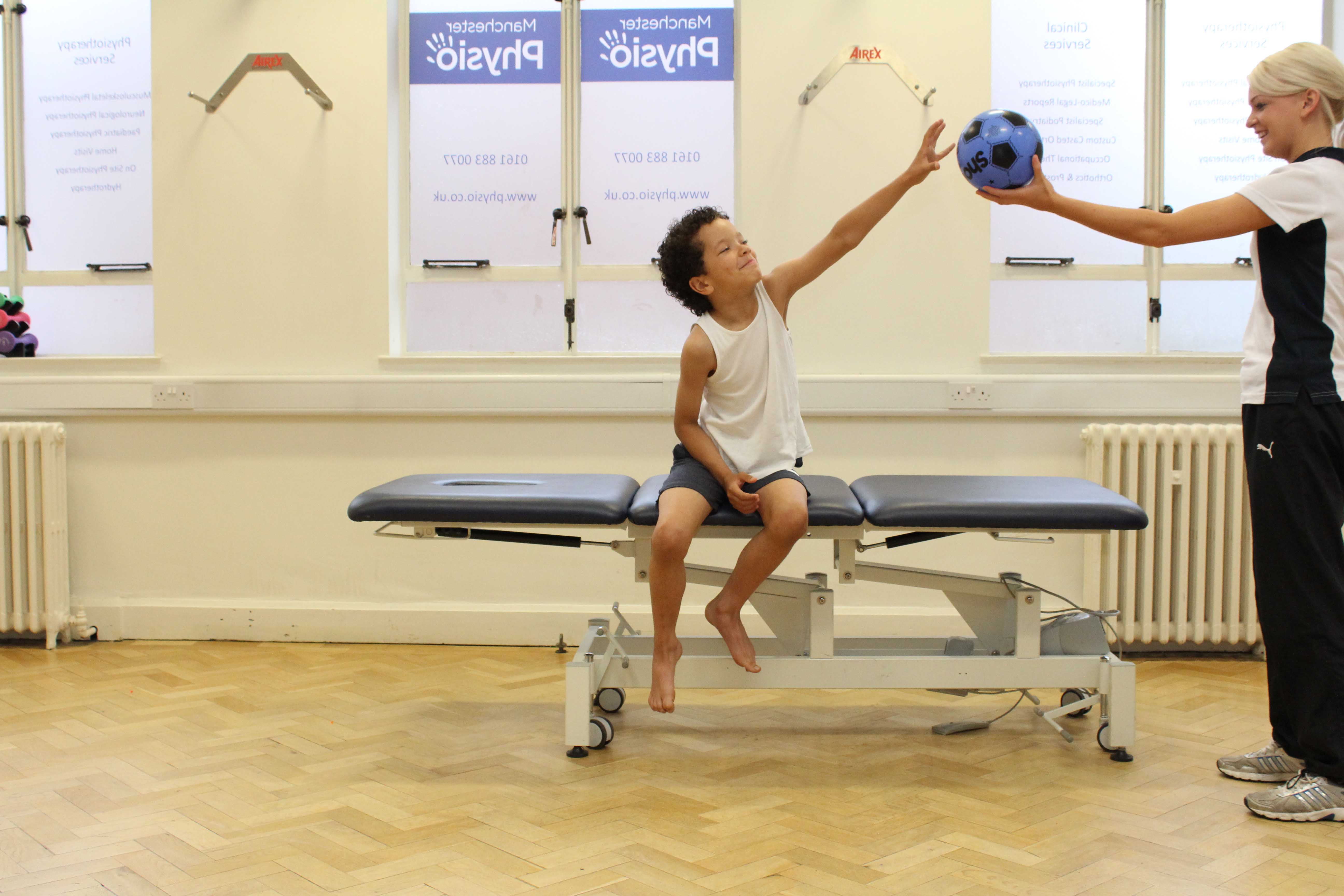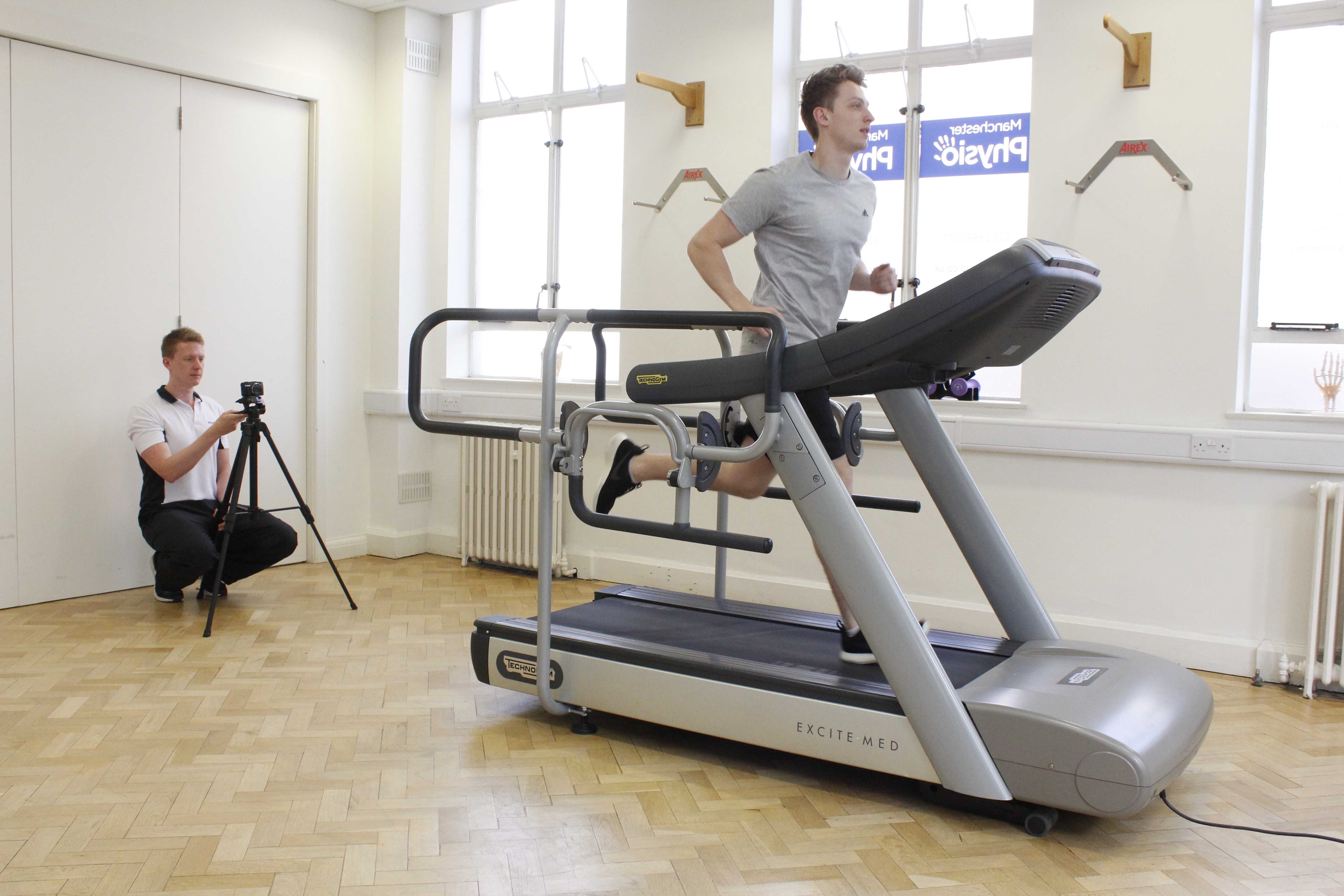- Muscle imbalance
- Muscle strain / tear
- Ligament sprain
- Joint instability
- Inflammation and swelling
- Nerve injury
- Muscle cramps
- Fractures – immobilisation for a period of time leads to stiffness
- Pain
 Above: Experienced physiotherapist testing range of movement available within the shoulder
Above: Experienced physiotherapist testing range of movement available within the shoulderWhat causes movement disorders?
The causes of movement disorders can be as a result of an acute traumatic injury which leads to structural damage such as a fracture or contusion or due to an overuse / repetitive sprain. This is where the structures become irritated. Repetitive injuries can have many symptoms which lead to the development of movement disorders such as nerve injury, pain and muscle spasm.
 Above: Gait re-education exercises supervised by experienced physiotherapist
Above: Gait re-education exercises supervised by experienced physiotherapistHow can Physiotherapy help?
Physiotherapy is a profession that helps to achieve and maintain functional movement to help improve quality of life. Physiotherapists can help people with movement disorders by:
- Improving joint range of movement
- Improving muscle length
- Improving the quality of a movement
- Increasing and maximising independence
- Improving a person’s gait
- Decreasing swelling
- Functional electrical stimulation
- Pain management strategies
- Exercises to improve strength
 Above: Physiotherapist assessing postural stability during movement using reaching exercises
Above: Physiotherapist assessing postural stability during movement using reaching exercisesWhat type of Physiotherapy treatments can be expected for Movement Disorders?
There are a variety of physiotherapy treatments available to those who have movement disorders. Some of the treatments which could be used at Physio.co.uk are:
- Stretching exercises
- Movement re-education
- Gait re-education
- Strengthening exercises
- Pain Management
- Taping
- Splinting
 Above: Biomechanical assessment of clients running gait by specialist Physiotherapist
Above: Biomechanical assessment of clients running gait by specialist PhysiotherapistSummary
Movement disorders can affect a person’s independence and quality of life. The physiotherapists at Physio.co.uk provide a high quality service to work towards meeting the needs of each individual with a tailored assessment and treatment plan. Please contact us or call 0330 088 7800 to arrange an appointment.

 0330 088 7800
0330 088 7800


































